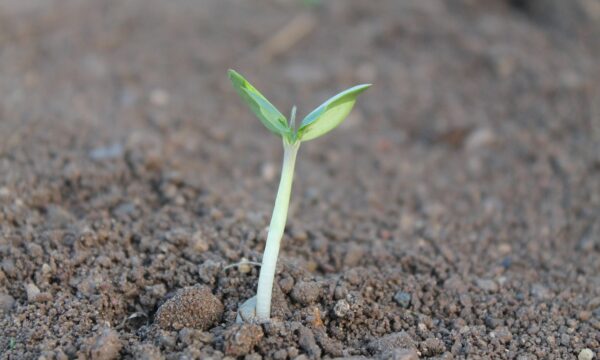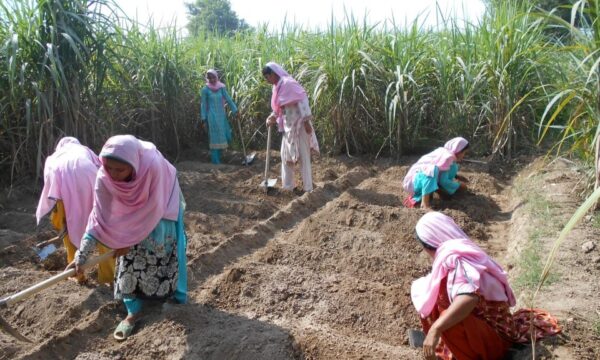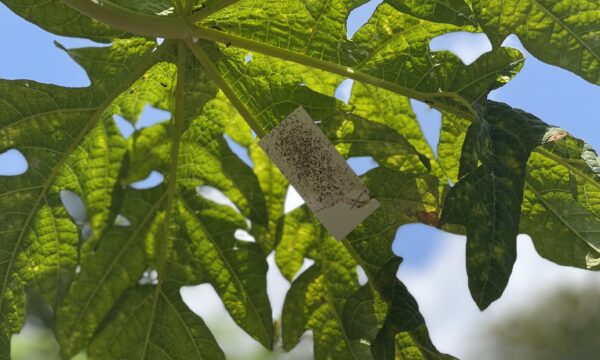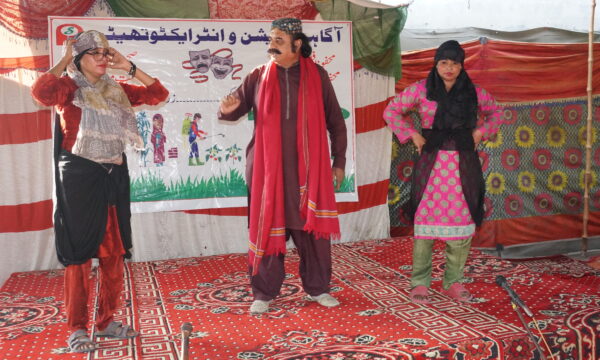
In a remarkable effort to enhance agricultural practices, Grenada’s Ministry of Agriculture recently hosted a pivotal training course on biological control organized and co-funded by CABI’s PlantwisePlus programme in collaboration with Sandals Foundation*. The course provided participants with a comprehensive overview of biological control strategies tailored specifically to Grenada’s agricultural context.
Biological control leverages natural enemies of pests—such as predators, parasites, and pathogens—to manage pest populations without relying heavily on chemical pesticides. This method not only promotes environmental health but also supports long-term agricultural sustainability.
Through the combined efforts of the Ministry of Agriculture, CABI, and the Sandals Foundation, farmers and technicians learned to identify the Croton Scale and other key pests affecting Grenada’s agriculture. Trainees also learned how to identify the biological control agents present in the country’s agroecosystems.
Laying the foundations for integrated pest management solutions in Grenada
Both technical staff from the Ministry of Agriculture and local farmers attended the course. This reflects a unified approach to improving pest management and promoting sustainable agriculture. Around 45 farmers and 35 technicians from the Ministry of Agriculture were trained.
The training brought updated knowledge about biological control to the island of Grenada. It lays the foundations for establishing integrated pest management (IPM) programmes from the PlantwisePlus perspective.
A course tailored for Grenada
Theoretical foundations



The training began with a deep dive into the principles of biological control. Subject experts, Dr Yelitza Colmenarez (CABI), Dr Guillermo Cabrera (FuEDEI-Argentina) and Dr Carlos Vásquez (UTA-Ecuador) presented the science behind various biological control agents. This included information on beneficial insects, nematodes, and microbial organisms. Participants learned about their life cycles, effectiveness, and integration into existing pest management systems.
Practical application and field demonstrations
Bridging theory with practice, the course included hands-on demonstrations in laboratory and local farming environments. These sessions allowed the technical staff and farmers to see biological control agents in action. They also got to practice the techniques under the guidance of experts. Field exercises were tailored to address specific pest issues and crops prevalent in Grenada.

Local adaptation and case studies
To ensure relevance, the training included case studies from similar climates and farming systems, with practical examples of successful biological control implementations. Thus offering strategies for adapting these methods to Grenada’s unique agricultural landscape. This included special emphasis on croton scale (Phalacrococcus howertoni) and its natural enemies occurring on the island.

Integration into broader pest management strategies
Participants explored how biological control fits into broader Integrated Pest Management (IPM) strategies. The training emphasized combining biological control with other methods to maximize effectiveness and sustainability.
A sustainable agricultural future for Grenada
This course marks a significant step towards advancing pest management in Grenada. By equipping both technical staff and farmers with advanced knowledge and practical skills in biological control, the initiative aims to improve crop health, enhance productivity, and reduce the environmental footprint of pest management practices.
The collaboration between CABI, the Ministry of Agriculture, and Sandals underscores a commitment to supporting Grenada’s agricultural sector with responsible farming practices and innovative, research-based solutions. As participants apply these new techniques, Grenada is poised to see the benefits of reduced pesticide use, healthier crops, and a more sustainable agricultural future.

As Grenada continues to embrace sustainable agriculture, insights from this training will be crucial in shaping a resilient and thriving agricultural sector.
Through such initiatives, Grenada is addressing immediate pest challenges. Plus, fostering a culture of sustainable farming practices that will benefit the country for years to come.
Learn more
PlantwisePlus biological control infographic
Types of biological control: augmentative, conservation and classical
PlantwisePlus Knowledge Bank Country Resources for Grenada
CABI publishes first guide to the naturalized and invasive plants of the Caribbean
All images provided by the author.
*The Sandals Foundation is a non-profit organization launched in March 2009 to help Sandals Resorts International continue to make a difference in the lives of people in the Caribbean.
PlantwisePlus gratefully acknowledges the financial support of the Directorate-General for International Cooperation (DGIS), Netherlands; European Commission Directorate General for International Partnerships (INTPA, EU); the Foreign, Commonwealth & Development Office (FCDO), United Kingdom; and the Swiss Agency for Development and Cooperation (SDC).
Related News & Blogs
“Use of any pesticide comes with some risk, but this risk can be reduced”
Pesticides are a widely used pest management option. However, if applied incorrectly, they can pose serious risks to human health, ecosystems, and food safety. From farm workers and consumers to pollinators and waterways, the impacts of unsafe pesticid…
30 June 2025




